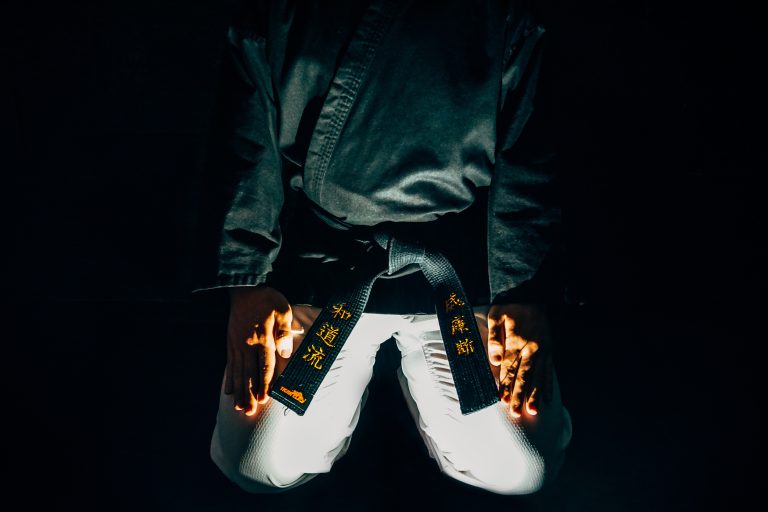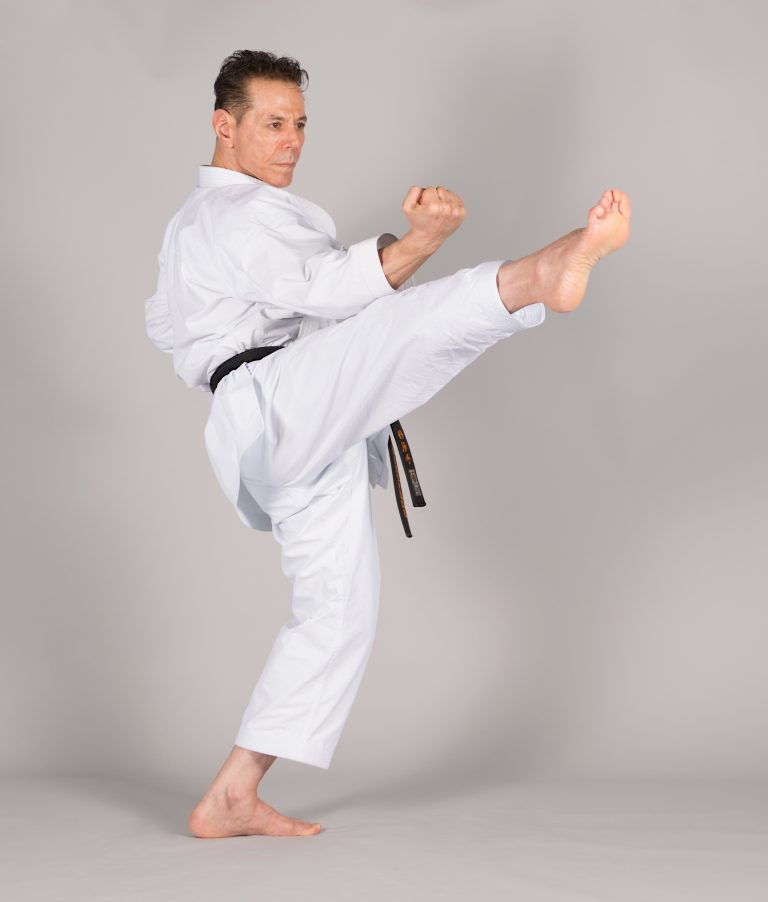Die drei Regeln des Karate
Karate ist eine alte Kampfkunst aus Japan, die oft auch als Sport betrieben wird. Karate ist nicht nur körperliche Aktivität, sondern auch eine Geisteshaltung. Die Disziplin und Regeln des Karate dienen dazu, Körper und Geist zu stärken und den Charakter zu formen. Hier sind drei wichtige Regeln des Karate, die helfen können, im Sport und im täglichen Leben erfolgreicher zu sein.
Respekt
Respekt ist eine der wichtigsten Regeln im Karate. Respekt bedeutet, dass man die Meinungen und Gefühle anderer achtet. Im Karate bedeutet dies, dass man seinen Lehrer respektiert und die Traditionen der Kampfkunst achtet. Im täglichen Leben bedeutet dies, dass man anderen Menschen mit Respekt begegnet und ihre Meinungen und Bedürfnisse berücksichtigt. Respekt ist eine wichtige Regel im Karate, weil es hilft, eine Atmosphäre des Friedens und der Zusammenarbeit zu schaffen.
Durchhaltevermögen
Durchhaltevermögen ist eine weitere wichtige Regel des Karate. Durchhaltevermögen bedeutet, dass man sich Ziele setzt und hart arbeitet, um sie zu erreichen. Im Karate bedeutet das, dass man sich auf Training und Übung konzentriert und nicht aufgibt, auch wenn es schwierig wird. Im täglichen Leben bedeutet das, dass man sich Herausforderungen stellt und hart arbeitet, um seine Ziele zu erreichen. Durchhaltevermögen ist eine wichtige Regel im Karate, weil es hilft, Erfolg und Selbstvertrauen aufzubauen.
Freundlichkeit
Freundlichkeit ist die dritte Regel des Karate. Freundlichkeit bedeutet, dass man anderen mit Respekt und Güte begegnet. Im Karate bedeutet dies, dass man auch im Kampf fair und respektvoll bleibt und nie seine Würde oder die Würde anderer verletzt. Im täglichen Leben bedeutet das, dass man anderen freundlich und unterstützend begegnet und versucht, anderen zu helfen, wenn man kann. Freundlichkeit ist eine wichtige Regel im Karate, weil es hilft, eine positive Umgebung zu schaffen, in der jeder respektiert und geschätzt wird.
Insgesamt sind Respekt, Durchhaltevermögen und Freundlichkeit die drei wichtigen Regeln im Karate. Sie helfen, den Körper und den Geist zu stärken und können auch im täglichen Leben angewendet werden. Wenn man diese Regeln befolgt, kann man erfolgreicher und zufriedener sein.
Die Drei Regeln des Karate: Here are the Most Frequently Asked Questions
Karate is a popular martial art discipline that originated in Ryukyu Islands of Okinawa, Japan. It is known for its powerful strikes and rigorous training techniques. One of the core principles of Karate is the three rules or principles. These rules have been passed down from generation to generation among the practitioners of the art. In this article, we will be discussing the three rules of Karate and answer some of the most frequently asked questions about them.
What are the Three Rules of Karate?
The three rules of Karate are:
- Be humble (Tani masani)
- Train hard (Kiyoku tadashiku utsu)
- Be sincere (Doryoku no seishin wo yashinau koto)
These three principles are the foundation of Karate practice and denote a code of ethics that every Karateka (martial artist) is expected to follow. Let us discuss each principle in detail and clarify some common questions related to them.
What Does It Mean to Be Humble in Karate?
The first principle of Karate is „Be humble“ or „Tani masani“ in Japanese. It means that a Karateka must always keep a humble attitude towards oneself and others. Humility is important because it helps to keep one’s mind open to learning and improving.
Some ways a Karateka can show humility:
- Respecting their instructors and the wisdom they impart.
- Being courteous and polite towards others both inside and outside the dojo.
- Remain grounded and never let their ego get the better of them.
It is important to remember that humility is not a sign of weakness, but rather a sign of strength.
What Does It Mean to Train Hard in Karate?
The second principle of Karate is „Train hard“ or „Kiyoku tadashiku utsu“ in Japanese. It means that a Karateka needs to put in the effort and work hard to improve their techniques and skills.
Training hard can take multiple forms. Here are some ways to train hard in Karate:
- Consistent training: Regular training sessions help develop the muscle memory needed for effective techniques
- Conditioning: Focus on physical conditioning by working out and keeping oneself in good physical shape.
- Sparring Sessions: Sparring allows karatekas to hone their techniques and improve their reaction times in real-life situations.
By training hard, one can hope to sharpen their skills and reach new levels of proficiency in Karate.
What Does It Mean to Be Sincere in Karate?
The last principle of Karate is „Be sincere“ or „Doryoku no seishin wo yashinau koto“ in Japanese. It means that a Karateka should be honest and true to oneself. One should not only train in Karate for physical gain, but to also develop a strong sense of self-discipline and character.
Sincerity is important in many areas of life, both in and outside of the dojo. Here are some ways a Karateka can be sincere:
- Respecting opponents: In Karate, opponents should be viewed as partners who help us learn and grow.
- Living by the principles of Karate: A Karateka that strives to live by the three principles will gain trust and respect from others.
- Helping others: A Karateka that helps others to progress in their training practices what they learn through Karate.
By being sincere, a karateka can hope to lead an ethically strong life and improve their character.
Why are the Three Principles Important in Karate?
The three principles of Karate are important because they help Karatekas become well-rounded martial artists with strong ethical and character development. Beyond that, the principles provide a basic structure that enables anyone to lead an ethically strong life.
Through these principles, Karate can be practiced with discipline and controlled power, but also with sincere respect for ourselves and others. Each principle seeks to instill strong virtues and qualities such as humility, sincerity, inner strength and fortitude, and determination to progress.
Conclusion
The three principles of Karate – Be Humble, Train Hard, and Be Sincere – are fundamental concepts of the martial art discipline. They are frequently asked about because they offer essential guidance and insights into a Karatekas‘ ethical and character development. Each principle has deeper meanings and implications and applies to both life in and out of the dojo. By practicing Karate with hard work, humility, and sincerity, we build a better self, a stronger community, and live our life vigorously based on principles of respect, determination, and inner character development.
Inhaltsverzeichnis






